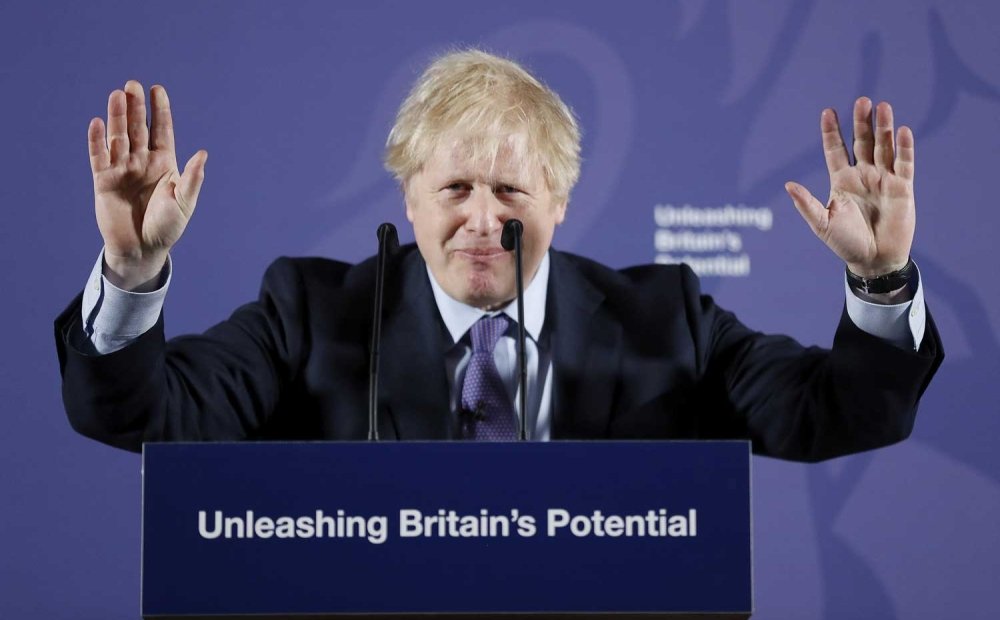Ground Truth Briefing | Brexit! What Now?

At 11pm ET on Friday, January 31st, 2020 the United Kingdom left the European Union after 47 years. While the moment was met with mixed emotions throughout the UK, it really wasn't an ending. Indeed, it was actually the beginning of the hard work of determining the relationship between the United Kingdom, the European Union, and the rest of the world post Brexit.
In this Ground Truth Briefing, experts sorted through a myriad of questions on a post-Brexit UK-EU relationship.
Selected Quotes
Garret Martin
“For 47 years, the UK was part of a club that gave it a certain foreign policy identity. It gave it a certain natural sense of partnership with its EU allies and other member states over the years. The question now is – it’s a significant choice, so there is opportunity, but there is also significant danger and difficulties for the UK ahead. What kind of foreign policy identity do they want to take over in the forthcoming years?”
“Now we are very much in an era of great power competition. There’s significant tension over trade and security between the EU, the US, and China, and various combinations. For the UK, that is also a very dangerous landscape…. It has already had to make some, awkward choices such as over Huawei, and I anticipate that there will be many more of those down the line.”
“I think great power competition is going to pose a number of challenges for the EU in the sense that as long as the EU is consummated by negotiations with the UK, it’s time away from dealing with or navigating its complicated multifaceted relationship with China, and its equally difficult relationship in later years, with the United States. On one hand, you could say [as far as] great power competition, the EU risks being crushed between two giants. On the other hand, one other aspect which could be interesting is that it could bring a certain amount of fluidity to this larger international stage.”
Michelle Egan
“I think the EU is thinking about the future of Europe, and that’s the sort of discussion they are going to have going forward, recognizing the stresses and tensions that they have. But I also think that the EU has somewhat adapted to the changing political and geopolitical and economic environments… They’ve moved to a model of what we call differentiation integration…. They are leaving this flexible model of integration available.”
“The new mandate that the EU put out was really interesting. We don’t just focus on trade.... They are looking at an agreement that is well beyond just trade: justice, criminal law, enforcement, security. It’s way beyond any sort of standard free trade agreement, if they can get that far. And so, the question becomes: Is it in Germany’s interest, also, to have Britain involved in security cooperation, intelligence sharing, and continuing other areas as well? So, it’s not just trade; it’s not just the economy here. It’s how much Germany, and others, would like Britain to be part of those networks.”
“One of the most significant decisions in January was the fact that all three assemblies and parliaments – the Stormont in Northern Ireland, the Scottish parliament, and the Welsh parliament – all three voted against the withdrawal agreement. Now, you might turn around and say that’s symbolic, because certain powers are not devolved to the parliaments. But the fact is that this is the first vote ever that all three have voted something down, so that was designed to send a message.”
Kent Hughes
“The interim agreement they have is not too clear on what the future of financial relations will be. Can the UK, which has really been the financial heart of the EU, continue to provide all these complicated services dealing with derivatives and so forth…. This is going to be a major question for UK relations with the EU – the internal EU debate about what links they want to maintain with Britain.”
“I think this regulatory question is really central. That’s what the T-TIP – the Transatlantic Trade and Investment Partnership negotiation – is really going to get at. I think one thing that makes the U.S. a bit different is that our major companies are almost entirely global, and almost all of them have big stakes in Europe both in terms of investment and market, so they are increasingly caught between what might be so flexible, let’s say, regulations in the U.S., but nonetheless, regulations they have to meet in Europe…. I think that maybe that long term Europe’s determination to have higher standards may really, in the end, affect U.S. standards as well.”
Moderator

Panelists

Professor and Jean Monnet Chair ad personam, School of International Service, American University

Former Director, Program on America and the Global Economy, Woodrow Wilson Center
Hosted By

Global Europe Program
The Global Europe Program is focused on Europe’s capabilities, and how it engages on critical global issues. We investigate European approaches to critical global issues. We examine Europe’s relations with Russia and Eurasia, China and the Indo-Pacific, the Middle East and Africa. Our initiatives include “Ukraine in Europe”—an examination of what it will take to make Ukraine’s European future a reality. But we also examine the role of NATO, the European Union and the OSCE, Europe’s energy security, transatlantic trade disputes, and challenges to democracy. The Global Europe Program’s staff, scholars-in-residence, and Global Fellows participate in seminars, policy study groups, and international conferences to provide analytical recommendations to policy makers and the media. Read more
